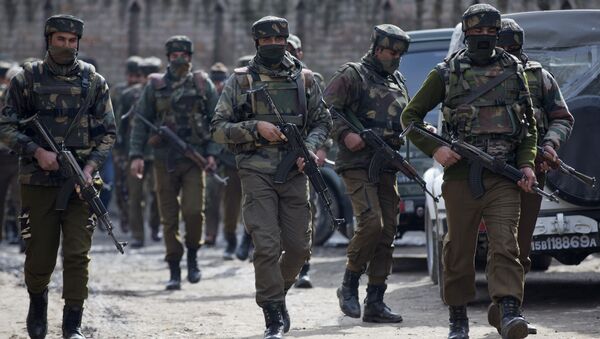Journalists in Kashmir on Monday alleged that the central government is muzzling their voice by the use of physical attack, threats, and interrogation summons for journalists by security agencies in attempts to intimidate them.
The allegations were made in a statement by the Kashmir Press Club.
Following a meeting with representatives of all journalist associations, the club elaborated at least 10 incidents against journalists employed by various well-known media houses.
“The harassment and questioning of journalists in Kashmir on flimsy grounds by the J&K Police for their work is in fact a damning verdict on the appalling condition in which media is operating,” the statement reads.
There has been no immediate comment or reaction from security forces or the defence ministry.
In one such incident, on 1 September in 2019, journalist Peerzada Ashiq of 'The Hindu' newspaper was detained and interrogated by police at the Kothi Bagh Police Station, where he was “pressured” to reveal his story sources.
In November 2019, two journalists, Zubair Dar and Muzamil Mattoo, were beaten in a downtown area of Srinagar while on assignment.
“Two journalists working for media outlet “The Print” and “Newsclick” were also beaten up by police in full public glare in Srinagar while covering a protest. Despite assurances by the police, no action was initiated against the accused cops,” the statement read without giving a date for the incident.
The reporters allege that officials who beat them repeatedly ask: "Why did you carry stories against me?”
The independent journalist group asked the government to stop police from detaining and attacking on journalists.
"Being the Fourth Estate, the government should ensure freedom of speech and expression as guaranteed in the constitution instead of muzzling the press. Viewing media as part of the problem in Kashmir and blaming journalists for everything wrong is misplaced," the statement added.
The statement comes up as the European Parliament in Brussels is set to vote on a resolution on Jammu and Kashmir, likely to be held on 31 March, after being canceled in January. An EU delegation is expected to visit Kashmir.
Soon after New Delhi’s August 2019 decision to revoke the special status of Kashmir, politicians, journalists and local leaders were detained.
The contested region has been put under a communication lock down with a heavy deployment of security forces, although connectivity has improved somewhat and some telephone services have been restored.


